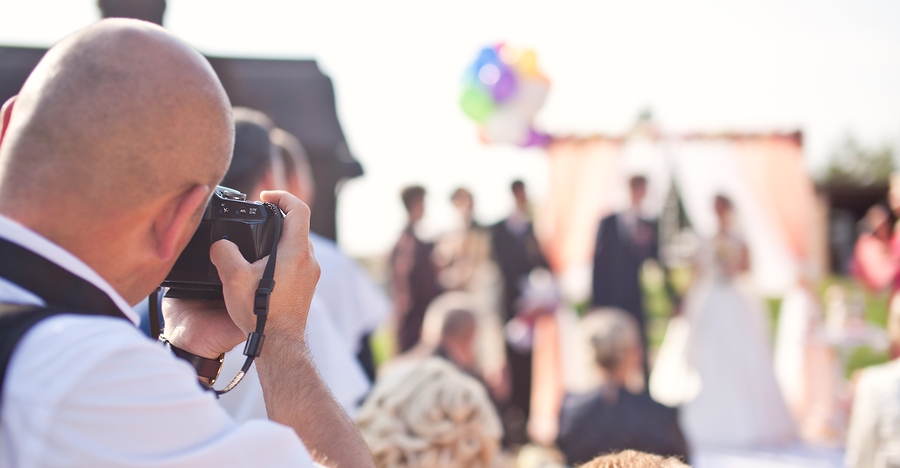Taking pictures of a wedding is not like any other photoshoot you’ve done before.
These may be the most important images of your clients’ lives – and it’s not like you can rearrange the shoot if the first pictures don’t turn out good. So make sure you’ve thought of every possible detail before accepting the job. You should ask yourself at least these 5 questions.
What exactly am I getting myself into?
The scope of a wedding photography shoot goes way beyond the ceremony and reception. You must spend time communicating and likely meeting with the couple to go over such important details as the timeline and their expectations for the pictures. You will need to spend time visiting the venues to scout locations in advance and to visualize the images you can create there. And plan to spend extra time the day before the ceremony checking and double-checking your gear to make sure everything is ready to go and nothing is forgotten.
The big time-suck to consider, however, is the editing process. You will likely shoot hundreds, if not thousands, of photos over the course of a wedding, and it’s easy to underestimate just how much time it takes to cull and edit that mass of images. You will spend far more time looking at and editing the photos than you spent taking them.
Are my skills ready for this?
This should be the most obvious one, but it can also be the most challenging to face. You may know your camera like the back of your hand, but there are a variety of other skills required to pull off a wedding. A large part of the day centers around figuring out logistics, scheduling, and a million other things that have nothing to do with f-stops or shutter speeds.
You also have to account for the pressure that you’ll be under on the wedding day. If you have never tested your photography skills in a tense situation, it’s worth starting a little smaller and working your way up. You don’t want to freeze in front of a bridal party that’s eager to get to cocktail hour.
Is my gear ready for this?
You know the well-worn trope that it’s the painter and not the brush that makes a masterpiece. But if the painter shows up with a plastic-barrel 50mm f/1.8 paintbrush that breaks midway through the process, then we have a problem. Cameras break. Lenses break. Memory cards fail. Flashes die.
If you have something that you really rely on for a shoot, you’re going to want to make sure you have a backup for it in case something goes wrong. Buying backup gear isn’t exciting, but it is essential if you want to take this seriously.
Renting gear is also an option, but it’s worth getting it early to become familiar with the stuff you rent. You don’t want to be learning how a specific camera or lens behaves when you’re in the middle of a crucial ceremony moment or you have an entire wedding party staring at you, eager to be done with portraits so they can go eat finger foods.
Am I on the same page with the couple creatively?
Wedding photography clients vary pretty widely when it comes to taste and aesthetic preference, so it’s important to understand their expectations well before the big day rolls around. For an experienced wedding photographer, the client can look at older work and get a feel for the style, but beginners don’t have that luxury. Communication is key, even before you sign the contract. If they’re expecting traditional, but you’re dead set on a photojournalistic style, it may be better to pass on taking the job, even if it means turning down a nice chunk of change.
What happens if I screw this up?
It’s always good to keep a positive mental attitude about a job, but that doesn’t mean you shouldn’t consider the consequences if something goes wrong. The contract should outline most of your contingencies, but that doesn’t account for things like personal relationships or professional reputation.
Everyone has to start somewhere, but if you really don’t feel like you’re ready for that start, it’s important to know that turning down a job is OK.
Read the full article over at Popular Photography.
Source: Popular Photography

